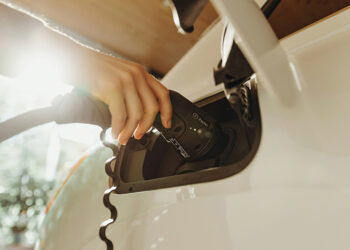Building a Coffee Empire on The Cream of Café Culture
Not so long ago, going to a café for most Hong Kongers meant stopping off in a traditional cha chaan teng for refreshment, such as strong milk tea laced with condensed milk, or a glass of syrupy iced lemon tea with a thick slice of French toast on the side.
These time-honoured snacks and beverages, however, have had to stand up to ever-increasing competition – and not just from the likes of major coffee retailers Starbucks or Pacific Coffee.
The success of local chains such as The Coffee Academics and 18 Grams has encouraged a new wave of F&B entrepreneurs to bring in fresh ideas to the market, and a host of themed cafes has recently set up shop in the city.
They include the Harry Potter-themed 9¾ café, where candles are suspended from the ceilings and chairs are backed with the insignia of the four houses of Hogwarts. Global brands are getting in on the act too: at the newly-opened Godiva Lifestyle café, guests can sample the Belgian chocolatier’s take on fondue and afternoon tea.
What seems to be the overriding theme, however, is a focus on the finest ingredients, whether it’s premium teas at Flamingo Bloom, or first-rate coffee beans at one of the city’s new independent coffee houses.
Barista Bent
Amber founder Dawn Chan is a two-time winner of the Hong Kong Barista Championship, and finished fourth place in the World Barista ChampionshipA minimalist-style café/bar with coffee beans sourced from small-batch farms in Colombia and Brazil, Amber offers a different signature drink each month, such as the Amber, coffee mixed with pineapple juice, beer hops and Earl Grey tea. In the evening, the porcelain cups are replaced by wine glasses and the space turns into a bar.
Launched last Spring, Amber was started by barista Dawn Chan, two-time winner of the Hong Kong Barista Championship, who also secured fourth place in the World Barista Championship.
Hong Kong’s discerning clientele makes the city an ideal location to start his business, says Mr Chan. “It may be a small place, but it’s full of people looking for good quality and they are willing to look around to find better coffee,” he says.
“People used to love latte art only, but now they want to know more about the origin or the flavours of the coffee,” he says.
Following the success of his first café, Mr Chan hopes to open similar outlets in Hong Kong and overseas and is keen to find partners to achieve that goal. He also plans to hold wine and coffee-tasting events and may travel to the Chinese mainland, Taiwan and Japan to host some Amber pop-ups. “I’ll also keep participating in different world coffee competitions to improve my barista skills and learn from others,” he says.
Trendy Tea Shops Take off
On a mission to make Chinese tea cool by combining it with fruit, upscale tea salon Flamingo Bloom offers Instagram-friendly drinks, such as smashed strawberries with jasmine green tips, with cool add-ons such as boba pearls or a salted milk cap.The bar’s open layout makes it not only fun, but promotes transparency so customers can see what’s going into their drink. Following the success of its first store in Central, which opened in July, another salon soon followed three months later in Tsim Sha Tsui.
The tea salon was set up by Benjamin Ang and Louisa Wong, the former of whom also founded F&B group Dining Workshop, which owns the Yum Cha and Urban Park restaurants.
The partners thought that setting up a tea salon would be more manageable than a restaurant as there would be no need to employ chefs. “We also felt that many tea shops didn’t offer something with a lifestyle feel – it’s usually grab and go and you can’t chill out there.”
Ms Wong also believed that many local tea shops weren’t providing the younger generation with the health-conscious options they desire, using instead tea powder and milk powder.
Flamingo Boom uses whole-leaf tea sourced from Taiwan and the mainland, with four basic tea bases available: Fujian jasmine green tea tips, Taiwan’s highland oolong, Yunnan’s chrysanthemum pu’er and honey orchid black tea from Sichuan. “We also wanted to incorporate fresh fruit into our drinks as it’s healthy, and we smash our fruit to keep the fibre in, which helps the digestive system.
A lot of juice shops on the street extract all the juice and fibre,” she says. There is the added advantage that tea has half the caffeine of coffee, making it a healthier alternative, according to Ms Wong.The start-up is considering entering the Southeast Asia market and has already been approached by potential partners overseas. “With the warm climate, I think our drinks could be very popular there.
Tea is very botanical, very tropical, and as we use a lot of fruit, it would be easier to source out there,” she says. To keep rental costs down, it is also considering opening some grab-and-go tea outlets in Hong Kong.
Building a Coffee Empire

Renowned for its flat whites – many customers deem them as the best outside of Australia – Noc Coffee has garnered a loyal following among Hong Kong coffee aficionados, and opened its third shop, the Roastery Store in Sai Ying Pun, in October.
With more than 2,500 square feet of space, the new flagship store roasts beans on site to ensure optimum freshness, says founder and Director Benny Leung. “Customers don’t want to be limited to a single choice, so we currently offer two espresso blends and four single-origin beans,” he explains. Beans are lightly roasted to bring out the most natural flavour and a mellow, rounded taste.
Mr Leung was inspired to set up his business after noting that Hong Kong’s coffee culture has evolved rapidly over the past few years. But the surge in the number of international coffee chains and local independent coffee shops opening has also raised the stakes in Noc’s ongoing pursuit for an excellent cup of coffee, a process that involves sourcing the best quality beans, finding the perfect roasting level, and countless tastings.
Sourcing local organic ingredients wherever possible, Noc’s food menu is specially created to complement the coffee and includes healthy options such as the Acai Bowl and quinoa cauliflower salad. “We strongly believe the taste of the food must never overpower the aroma and taste of the coffee,” he says.
Mr Leung hopes to take the Noc brand to other markets just like Coffee Academics, a local coffee house that has outlets in Singapore, Shanghai and Beijing. “Hong Kong’s geographical advantage is it can be used as a launch pad to markets in Asia and other major cosmopolitan cities all over the world,” he says.
Despite economic downturns in recent years, the specialty coffee business continues to show strong growth in the city, says Mr Leung. “Coffee has really become a part of life [in Hong Kong].”
Discover more from Thailand Business News
Subscribe to get the latest posts sent to your email.














